The field of medical and life sciences is vast, dynamic, and ever-evolving, offering a plethora of opportunities for individuals passionate about health, research, and innovation. Whether you’re drawn to patient care, diagnostics, research, or healthcare technology, there are numerous educational courses tailored to suit various interests and career aspirations. In this article, we will delve into the different courses you can pursue to build a career in the medical and life sciences domain.
Traditional Medical Courses
For those aspiring to become medical professionals such as doctors or dentists, traditional medical courses are the most sought-after pathways:
MBBS (Bachelor of Medicine, Bachelor of Surgery)
A foundational course to practice as a general physician or surgeon
BDS (Bachelor of Dental Surgery)
For careers in dentistry, focusing on oral and dental health
BAMS (Bachelor of Ayurvedic Medicine and Surgery)
Centers on Ayurvedic medicine, a traditional system of healing
BHMS (Bachelor of Homeopathic Medicine and Surgery)
Specializes in homeopathy for holistic health care.
BVSc (Bachelor of Veterinary Science)
Focuses on animal health and veterinary medicine
2. Allied Health Sciences Courses
Allied health sciences are indispensable in modern healthcare, providing support in diagnosis, treatment, and rehabilitation. Popular courses include:
- B.Sc. Nursing: Prepares individuals for roles in patient care and hospital management.
- BPT (Bachelor of Physiotherapy): Focuses on physical therapy and rehabilitation.
- BMLT (Bachelor of Medical Laboratory Technology): Trains professionals to perform diagnostic tests.
- B.Sc. in Radiology and Imaging Technology: Specializes in diagnostic imaging such as X-rays, CT scans, and MRIs.
- B.Sc. in Ophthalmic Technology: Equips students to assist in eye care and surgeries.
3. Paramedical Courses
Paramedical courses provide quicker entry into the healthcare sector and focus on specialized areas:
- Diploma in Medical Laboratory Technology (DMLT): For laboratory work in diagnostics.
- Diploma in Emergency Medical Technology: Trains professionals to handle emergencies and trauma.
- Diploma in Operation Theatre Technology: Prepares students to assist during surgeries and manage operation theatres.
4. Life Sciences and Research-Oriented Courses
Life sciences focus on understanding living organisms, their functions, and the environment, making it a preferred choice for research enthusiasts:
- B.Sc. in Biotechnology: Covers genetic engineering, molecular biology, and more.
- B.Sc. in Microbiology: Focuses on microorganisms and their impact on health and the environment.
- B.Sc. in Biochemistry: Studies chemical processes in living beings.
- B.Sc. in Zoology/Botany: Specializes in animal or plant biology.
5. Pharmaceutical Sciences
A career in pharmaceuticals offers roles in drug development, manufacturing, and healthcare consulting:
- B.Pharm (Bachelor of Pharmacy): Focuses on drug formulation and healthcare products.
- D.Pharm (Diploma in Pharmacy): A shorter course that provides foundational knowledge of pharmacy.
- Pharm.D (Doctor of Pharmacy): A professional degree in clinical and community pharmacy.
6. Postgraduate Specializations
For those who want to delve deeper into their field of interest, postgraduate specializations are a natural progression:
- MD/MS (Doctor of Medicine/Master of Surgery): Advanced courses for medical graduates to specialize in areas such as cardiology, neurology, or orthopedics.
- M.Sc. in Clinical Research: Focuses on clinical trials and research methodologies.
- M.Pharm (Master of Pharmacy): For specialization in pharmaceutical sciences.
- M.Sc. in Genetics: Explores genetic conditions, therapies, and research.
7. Emerging Fields in Medical Sciences
With the integration of technology, new fields in medical sciences are gaining prominence:
- Biomedical Engineering: Combines engineering principles with biology for medical innovation.
- Health Informatics: Merges IT and healthcare for effective data management and patient care.
- Artificial Intelligence in Healthcare: Focuses on AI applications in diagnostics and treatment planning.
8. Alternative Medicine Courses
Alternative medicine is becoming increasingly popular due to its holistic approach:
- Diploma in Yoga and Naturopathy: Focuses on natural healing methods.
- Courses in Acupuncture and Acupressure: Specialize in ancient techniques for pain management.
- B.Sc. in Nutrition and Dietetics: Prepares professionals for diet planning and nutritional counseling.
Choosing the Right Path
The right course depends on your interests, aptitude, and long-term goals. Here are some considerations:
- Interests: Are you inclined toward patient care, research, or technology?
- Duration and Investment: Some courses require longer commitments and significant financial investment.
- Future Scope: Research the demand and job prospects in your chosen field.
Conclusion
The medical and life sciences domain offers vast and rewarding career opportunities. Whether you aim to work in hospitals, labs, or research institutions, there’s a course for every interest. By choosing the right pathway, you can contribute meaningfully to healthcare and innovation.
For expert guidance and information on top colleges and courses, visit Vidya 360 and take the first step toward your dream career.
